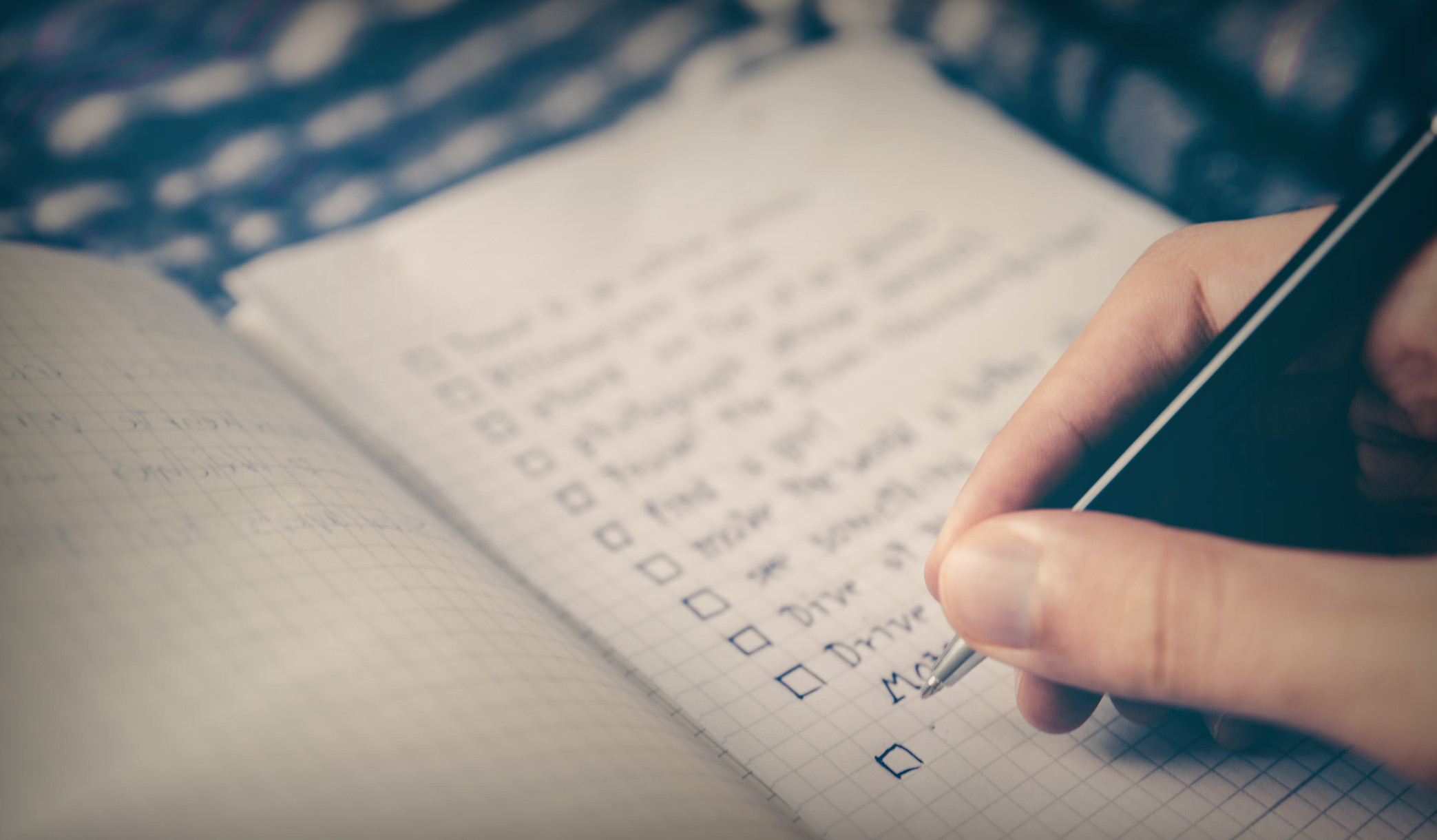By Greg Thurston, creator of Seven Minute Mindfulness
Resilience is one of the MOST important qualities a person can have… and the last few years have put it to the test.
The constant negativity can be overwhelming…
Which is why I decided to make this year the YEAR FOR LEARNING RESILIENCE.
First, what is resilience?
Essentially it’s the ability to withstand adversity and to deal with whatever comes up along the way… overcoming setbacks, adapting, and taking care of yourself.
It’s NOT about denying reality…
But positioning yourself to absorb the stress… And at the same time strive for joy and success.
So I put together a master list of the most powerful habits to be more resilient (I’m focusing on #11 right now, and it’s been a breakthrough!!!)
Think about them and see how they work for you!
#1. Create routines

Routines are one of the best tools we can use to stay on track.
Routines eliminate “in the moment” decision-making.
Routines help us to do the important things each day without having to think about it.
This is THE BEST WAY to ensure you do everything you need to be well.
For example, I struggle with hip pain. So it’s vital that I start the morning with Tai Chi and yoga.
That’s my routine, and when I do it, life is better. Simple.
Some people only need a morning routine, while others find it useful to plan out the entire day. Likewise, some people like a night routine.
Make a list of the things that keep you going, create routines, and do them.
#2. Connect with people
We are social beings who are meant to be part of a community – so make an effort to spend time with other people.
I particularly love the concept of MEHs (most energetic humans).
Think about who the MEHs are in your life, and make an effort to connect with them.
And even if it can’t be an in-person meetup, pick up the phone, message them, or go old school and write a letter!
#3. Set goals
Without goals, we lack focus and a sense of direction.
This can be especially difficult during tough times… but by setting goals and focusing on what we want to achieve, we can build resilience.
And as we start to achieve our goals, we’ll feel motivated to keep going.
So if you haven’t already, take some time to sit down and write out your goals.
And don’t forget to celebrate your achievements along the way!
#4. Finish work on time
Nowadays it’s easy to get in the mode of working all the time.
However, if we don’t set boundaries, we’ll continue to push ourselves until it becomes a problem.
Try to finish work at the same time every day. After work is time to relax or do something fun. It really makes a difference to avoid burn out and come back refreshed the next morning.
#5. Go for it!
I used to be very risk-averse. But the truth is, so what if you fail?
We all fail.
So let’s quit being afraid of making mistakes and just go for it!
We get so caught up in reasons why “now is not the right time”. But the truth is, it’s never going to be the “perfect time” to take on the big challenge you always wanted to achieve.
After all, you miss 100% of the shots you don’t take.
#6. Learn from failures (without beating yourself up)
Everyone makes mistakes, but it’s how we learn from them that matters.
Failure is a part of life and it’s important to embrace it. When we fail, it’s often because we tried something. And that’s a good thing!
It means we’re expanding our horizons!
But if we don’t learn from our failures, we’re destined to make the same mistakes over and over again. That’s why it’s so important to analyse what worked, what went wrong, and figure out what we can do differently next time… then put that into practice.
So the next time you fail (and you will), remember to pick yourself up, learn from the experience and keep going!
#7. Watch your self-talk… be your own coach

I recently heard from a high performance coach the idea of “being your own coach”…
HERE’S THE IDEA…
Imagine that you’re a coach. How would you talk to the person you’re coaching? Would you scold them constantly and tell them they’re probably going to mess it up before they even tried? Would you keep reminding them of that one time they messed up?
Of course you wouldn’t.
You would encourage them and help them plan their next move. You’d remind them to lift their elbows, to warm up, or whatever they need to do to align themselves for success.
Tell yourself “YOU’VE GOT THIS”…
Prepare for upcoming challenges and remind yourself of the steps to get there.
You can choose to be your own worst critic or your own biggest supporter… So make the decision to treat yourself with kindness and respect!
#8. Notice when you’re in a bad place
It can be hard to honestly notice when we’re in a bad place, particularly if it’s for prolonged periods of time. But a big part of being resilient is to acknowledge those tough moments.
Clinical psychologist John Duffy puts it nicely…
“Avoiding your negative emotion may feel like an effective stopgap measure, but in fact it simply postpones, and perhaps escalates and exacerbates, a flood of negative emotion sometime in the future.”
— John Duffy, Clinical Psychologist
So notice when you’re in a bad place. Check in with how it feels. The next step is accepting that how you’re feeling isn’t “ok” and ask yourself if you can change something.
#9. Edit your life
Sometimes it feels like we’re stuck in a maze with no idea of which direction to go.
It can feel as though the more we do, the more others expect of us and that there isn’t enough time for it all. Life is never perfect, but why not try picking your best experiences or habits and make an effort to repeat them…
Or brainstorm new ideas to shake things up.
#10. Focus on your strengths
Think about what your strengths are. Then try and put them to use more often.
For example, if you’re good at public speaking, sign up for a Toastmasters club or offer to speak at an event. If you’re good at finances, you might like to put yourself forward as the treasurer of your local sports club or charity.
If you’re not sure what your strengths are, ask people who know you well.
The more you use your strengths, the more confident you’ll become and the more resilient you’ll be!
#11. Accept the things that are out of your control
This is a tough one.
It’s natural to get caught up in anger and frustration when things go wrong and are out of your control.
But we can take the power back by acknowledging that it’s out of our control, and turn our attention to the things we can control…
Like our reactions… our self care… our routines… or simply acknowledging the feelings.
It’s times like these that I find it particularly useful to take a moment for myself, and give myself a mental reset.
#12. Write a journal

This doesn’t have to take up loads of time, even 5 minutes.
Just get those thoughts out of your head and onto paper (or screen).
You might like to write about:
- What went well today? What can be learned?
- List 3 things you’re grateful for.
- Do a “brain dump”. Write whatever thoughts are on your mind.
- Or simply jot down what you did today.
If I’ve had a particularly intense day, I sit down at the end of the day and jot down my thoughts. It helps to release repetitive thought habits and add perspective…
… To clear the slate and move forward.
#13. Acknowledge the small wins
It’s easy to focus on what we haven’t achieved instead of celebrating small victories.
Don’t let them pass without acknowledging them!
Noticing your wins reinforces that YOU ARE CAPABLE… which creates a self perpetuating cycle.
#14. Limit news and social media
Now, I studied to be a journalist. I believe that THOUGHTFUL journalism is vital for a healthy society.
But in this day and age, we need to be mindful of the quantity and the tone of what enters our mind, and the impact it’s having on us.
The last few years have presented so many reasons to stare at the screen all day…
We’ve created new terms like “doom scrolling”… And many of us have felt the destructive consequences of living in a constant stream of fear, uncertainty, and controversy.
The 24 hour technology-based news world is going to be a challenge for the next generation.
So, be wise in how you approach media.
Set some guidelines or take a holiday. One friend decided to have 30 minutes of news each afternoon. Or you might take a month off, a week off, a day off, or only read the weekly roundup.
Find something that works for you, and stick to it.
#15. Develop a new skill
One powerful way to build resilience is to develop a new skill. This could be something like learning how to play an instrument, learning a new language, or taking a painting class.
There’s nothing better than stepping outside your comfort zone and trying something you always wanted to do.
So find something that interests you and give it a try.
#16. Exercise
Exercise has so many benefits. it releases feel-good chemicals in our brains, reduces stress, and offers a good mental reset.
Even getting up every hour to stretch or take a quick walk around the block will help. It also gives you time to think!
#17. Eat well
Make sure you’re fueling your body with nutritious food that will keep it running smoothly.
Limit sugary snacks and stick to a balanced diet full of fresh veggies and whole foods.
Your body and mind will thank you!
#18. Get enough sleep
Sleep is crucial for our physical and mental health.
When we don’t get enough sleep, it affects our mood, judgement, and ability to focus. It can also lead to health problems such as weight gain, high blood pressure, and heart disease.
So make sure you’re getting enough. And don’t go to bed looking at a screen, because the blue light really damages our sleep.
#19. Practice gratitude
I am a huge believer in the power of gratitude. It is one of the most important things we can do to improve our lives.
Sometimes it’s hard to find positives… but if we make the effort, we can train our brains to focus more on the positives rather than the negatives.
… And once you shift into this mindset… you’ll be unstoppable!
Create a habit of writing down three things each day to be grateful for each day, and consciously notice the positives in your day.
#20. Prioritise self-care
Self-care is one of the most important things we can do for ourselves, but it’s often one of the first things that we let slip.
Sometimes it can feel like we don’t have time or we get caught up in caring for others.
But the truth is, we can’t take care of others if we don’t take care of ourselves. We need to make time for ourselves in order to recharge.
So, set aside time each day to practice self-care and make it a priority.
I hope something in this list resonates with you. If you have any of your own strategies that you’d like to share, I’d love to hear them.
Do you want to a simple self-care routine to stress less, sleep better, and show up as the best version of yourself?…
Click HERE to QUICKLY activate your relaxation response!
Here’s to a resilient us!
Greg Thurston, creator of Seven Minute Mindfulness




Be the first to comment on "How To Be Resilient – 20 Reminders"